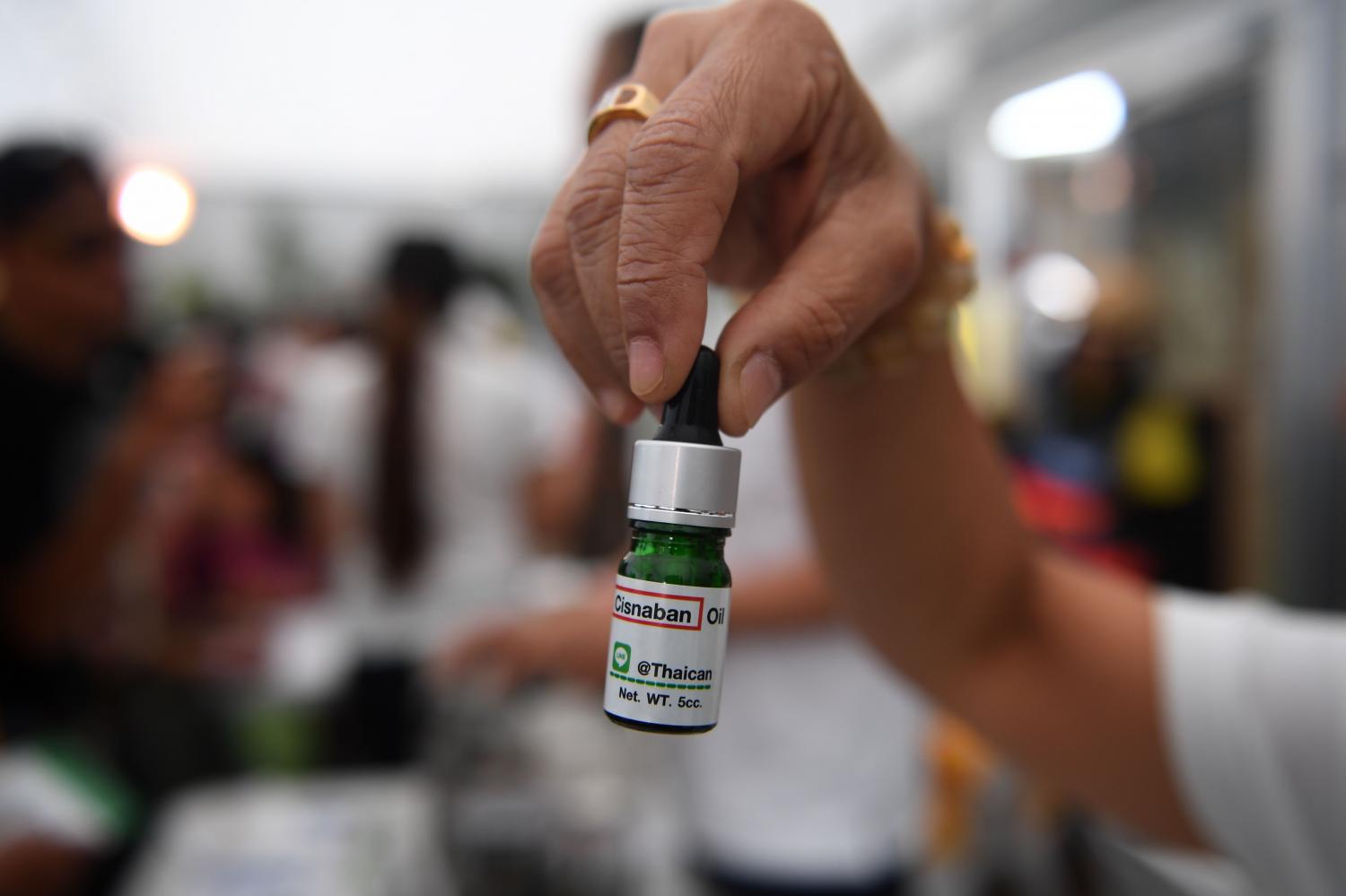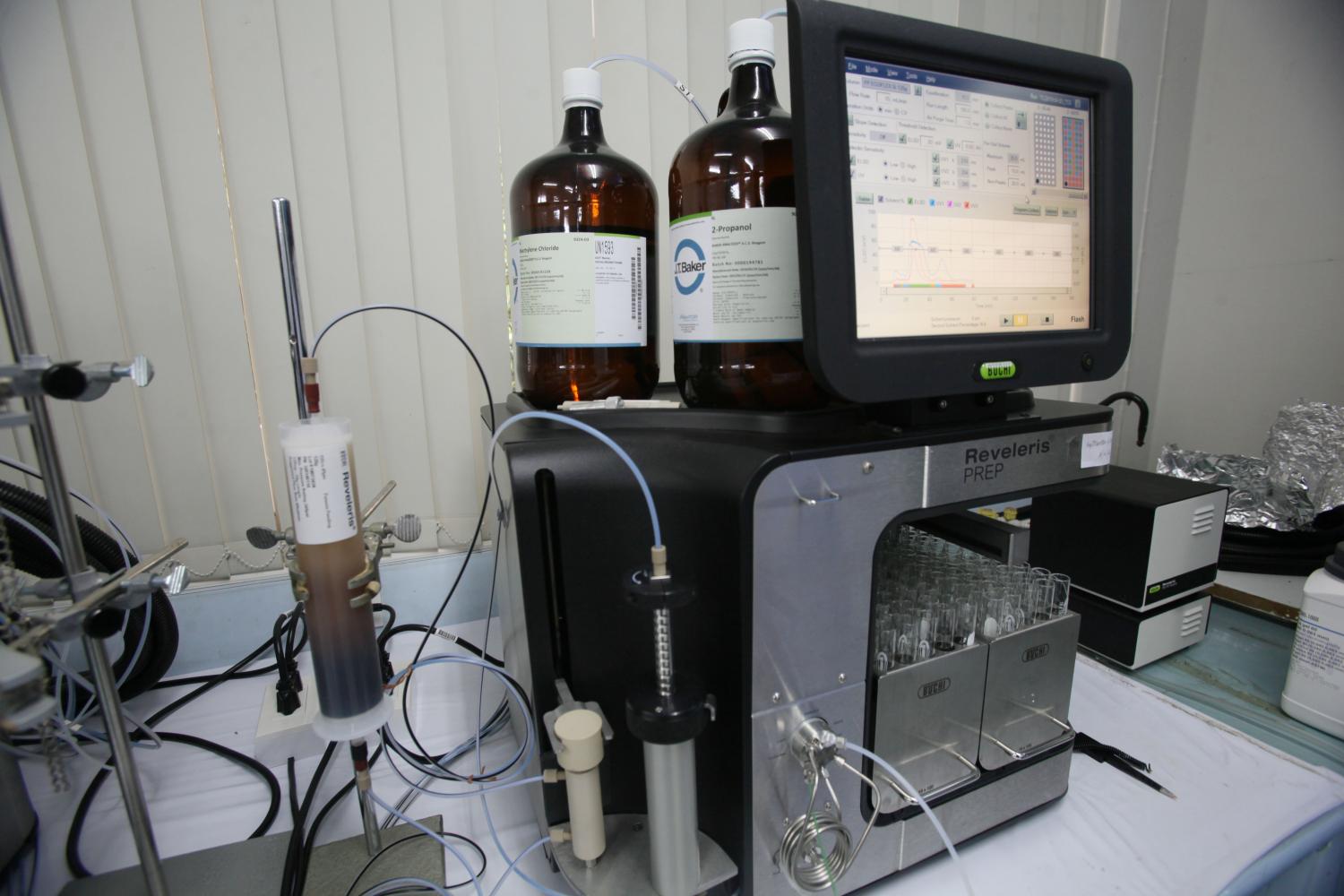At midnight, Vasu* was still struggling to keep his eyes closed. In a bid to cure to his chronic insomnia, the 28-year-old decided to try cannabis oil for the first time. After putting two drops under his tongue, he started to feel tranquilised. The self-administration continued until he'd eventually consumed a total of 40 drops. By 3am, Vasu had begun to hallucinate. He saw demons and had a double-vision alongside other symptoms such as a stiff tongue, speech difficulty, limb spasticity, nausea, vomiting and palpitations. In the end, he was rushed to hospital.
Doctors could only give Vasu intravenous fluids and leave him to rest as there is no antidote to the effects of a cannabis overdose.
Vasu is among the most recent cases of cannabis oil being misused. Medical marijuana -- and cannabis oil in particular -- has become all the rage after the revision of the Narcotics Act by the National Legislative Assembly (NLA) late last year, which resulted in the legalisation of marijuana for health purposes. Healthcare authorities issued warnings that cannabis oil can come with unwanted side effects. Nevertheless, outlets across the country continue to distribute the oil in the hopes that it will alleviate patients' symptoms.
Dr Sukhum Karnchanapimai, permanent-secretary of the Ministry of Public Health, came out last month and advised that cannabis oil should only be prescribed and used under the close supervision of medical practitioners who have undergone a special training course set up by the Department of Medical Services and the Department of Thai Traditional and Alternative Medicine.
Then last week, the Public Health Minister Dr Piyasakol Sakolsatayadorn ordered that a probe be conducted into the effects of cannabis oil on HIV/Aids sufferers. This came after reports emerged of an infected couple in Phetchabun province enjoyed improved conditions after they had been using cannabis oil for around three weeks. Apparently, the previously bedridden wife was able to get up, speak and do small routine activities. The couple had been recommended cannabis oil by a local nurse.
So is cannabis oil a miraculous cure-all? Or is it just hype?
Asst Prof Surang Leelawat from the Medical Cannabis Research Institute under Rangsit University's College of Pharmacy is one of Thailand's leading researchers into the medical use of cannabis. She conducted groundbreaking research into the use of marijuana extract to treat bile duct cancer. Surang said that, as yet, there are no studies that show cannabis oil is a definite cure for any disease. Therefore, the oil should still be used alongside conventional treatment.

A vial of medicinal cannabis oil at the Pan Ram weed festival in Buri Ram. Photo: LILLIAN SUWANRUMPHA
"The cannabis oil found in different places is extracted from plants from different locations," Surang said, "which means they could have different levels of efficacy. Also, different patients may respond to cannabis oil differently. So it is best if the oil is prescribed only by licensed doctors, rather than folk doctors, so that blood tests can be carried out as follow-up protocol."
Cannabis has more than 400 chemical compounds. The two active components for medicinal use are tetrahydrocannabinol (THC) and cannabidiol (CBD). THC -- the main chemical compound in cannabis -- is responsible for the high but is also used in various countries to relieve pain and nausea among patients suffering the side effects of chemotherapy. CBD, meanwhile, can counteract the high caused by THC. It has been proven to help reduce pain and act as an anti-inflammatory agent. In recent years, scientists have focused more on studying the properties of CBD and the properties of CBD and THC combined.
Cannabis oil can be extracted in various ways. In the lab, a special technique called super critical fluid extract is employed with the use of liquid carbon dioxide, which results in pure cannabis oil. A more common method is using alcohol as a solvent, then boiling the mixture until the alcohol evaporates, leaving behind the cannabis oil.
Based on data from the Ministry of Public Health, the medical benefits of cannabis are categorised into three groups of symptoms. The first group is conditions where there is strong medical evidence to support that cannabis can help. These include nausea and vomiting caused by chemotherapy, certain types of seizure that are resistant to drugs, and muscle spasms in patients with multiple sclerosis (MS).
The second group of symptoms does not have as strong evidence supporting the efficacy of cannabis, but studies indicate that it could help. This includes symptoms resulting from Parkinson's and Alzheimer's. This category also includes conditions suffered by cancer patients in the palliative-care stage. The third group is all about the use of cannabis in cancer treatment.
It is important that people understand cannabis oil is not yet used as a stand-alone treatment for any disease.

Rangsit University's Medical Cannabis Research Institute studies the plant's medicinal benefits. Photo: Apichit Jinakul
"Cannabis oil can't be regarded as a cure for any sickness," Surang said. "Even with the first group of symptoms, cannabis oil has only been proven to help relieve symptoms, not make them go away. If patients suffer from Alzheimer's, for example, they still need conventional medication alongside the administration of cannabis oil. The same applies to other conditions."
Using cannabis oil incorrectly carries potential risks. Too much can lead to fluctuating blood pressure, which can be especially serious among the elderly.
"I once attended an elderly cancer patient who had two drops of cannabis oil in the afternoon," the pharmacist recalled. "At around 7 or 8pm, an ambulance was called to pick him up because his blood pressure dropped significantly."
Due to its psychoactive properties, excessive use of cannabis oil can also bring about dizziness, anxiety, confusion and even hallucinations.
Getting out accurate information regarding the pros and cons of cannabis oil is, therefore, paramount.
"First and most importantly, patients should understand their own diseases," Surang advised. "Figure out if your conditions can really be helped by cannabis oil. For example, if you a headache that can simply be alleviated by a pain-relief tablet, then there's no need to turn to cannabis oil drops. Treat your sickness with conventional approaches first, then use cannabis as a supplement."
Surang is of the opinion that the decriminalisation of medical marijuana should be accompanied by specific regulations -- a set of certain diseases with which the use of cannabis is allowed. Thailand, she believes, is not ready to allow medical marijuana to be freely used with all illnesses, at least for now.
"I agree with legalising cannabis for medical purposes if it is prescribed by conventional doctors, just like with morphine," she explained. "Right now, cannabis oil is given away freely in many places, regardless of the disease. It is about time we weighed up the benefits of it along with economy- and crime-related risks. Perhaps cannabis should, for now, be seen as a last resort."
*not his real name

